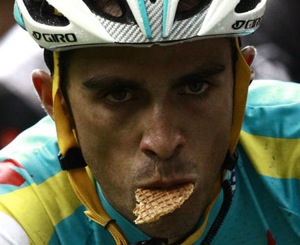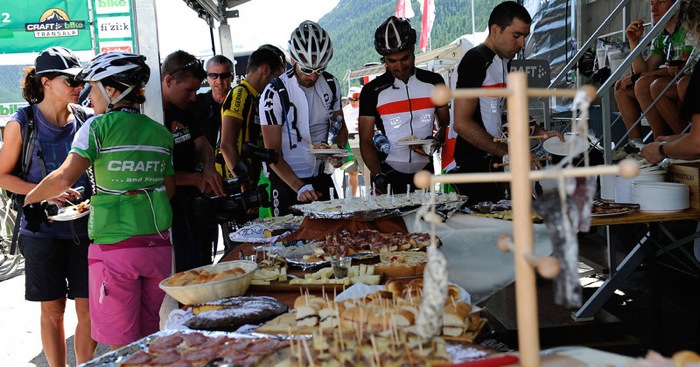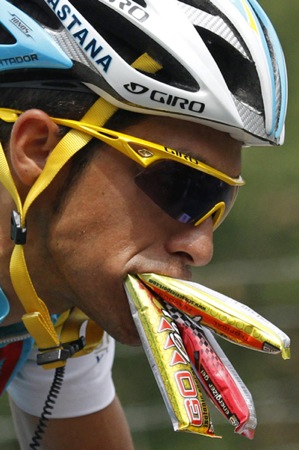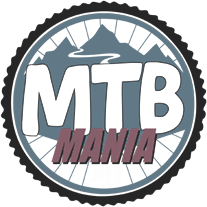Cycling and food. They go hand in hand, whether you like it or not. If you enjoy eating this is great news, but for most of us this concept presents a few challenges. Firstly, what are you expected to eat during a ride to maximize your energy production? Secondly, what should you eat before or after your ride... It's a dietary minefield alright!
BEFORE
Before exercising, you need to provide your body with sufficient food and time to digest it. For most of us this is breakfast. Ideally you should finish eating your breakfast about 2 hours before you exercise, but that would mean waking up at an ungodly hour! Just eat with at least 45 minutes to spare, and you should be saved from any 'secondary tastings' along the way during a hard effort.
For a morning meal before you ride, consider eating a healthy dose of carbohydrate rich cereal, such as wholegrain muesli or whole wheat toast. Avoid overly fatty additions like cream cheese on your toast, or highly processed yoghurt on your cereal, as this will make you feel sluggish. Be wary of high sugar content in your morning drink, such as processed fruit juices.

TIP: If you sleep through your alarm, and still want to ride, you can chomp on some fruit and a slice of toast as you charge out of your driveway to meet your riding mates. These foods digest very quickly, and provide almost instant energy without the slump associated with sugars.
DURING

If your ride is less than an hour, you don't need to eat on the road. But if your ride extends beyond around 90 minutes, you'll definitely want to take some food with you. The longer the ride, the larger the amount of food. If you're planning your food, remember the basic rule of 'one piece of food for every hour'. If you're riding for 3 hours, you'll be planning 3 main pieces of food, along with some yummy snacks to stash in your pockets.
- 1st hour: After completing the first hour, you'd consider a banana or a wholegrain muesli bar.
- 2nd hour: After your second hour, you'd be considering some pikelets or raisins and a muesli bar.
- 3rd hour: After your third hour, it's hometime! Consider a fruit bar or some sesame crackers.
NOTE: These snacks can be replaced by gels or performance bars, but usually in a competition scenario - not during training.
Always drink with every one of these snacks to assist your body in digesting your food. Also continue to drink throughout your ride, aiming for one bottle every hour (750ml per hour, water or supplement drink).
AFTER
The main benefit of eating after your ride is that you help your body recover and build from the session you just completed. It's crucial to try to eat within 30-45 minutes of completing your ride, as this is when your body will absorb the most from what you eat. It's asking for food, so feed it!
Foods high in protein and carbohydrates will help you recover from your ride, as well as fuel you until your next major meal - be it lunch or dinner. Consider these foods as recovery meals, choosing them depending on the time of day, and what you'd most enjoy eating;
- Peanut Butter Sandwich
- Baked Potato with Mince and Coleslaw
- Toasted Ham and Tomato Sandwich
RECIPE: Mix some raisins and a sprinkle of cinnamon into a cup of Natural Greek Yoghurt. Mix it up, and enjoy! High in protein, fruit sugars and healthy fats to fuel your tired legs.
Further reading: "Eat Well, Drink Well, Ride Well"
SUPPLEMENTS
You've no doubt seen the wall of supplements to choose from, with most of them promising faster recovery and greater performance the next day. The only thing that wasn't mentioned on the label was the need to complement this supplement with proper food. A real meal should always follow closely behind the supplement. Keep in mind that your body can not absorb the sheer amount of nutritional additives in these supplements, only taking a small percentage of what your supplement contains.
In fact, if you manage your diet correctly, you can avoid using recovery supplements instead of real food. We do suggest using supplements during your ride, to provide the fuel your body needs during your session. These supplements for use during exercise are almost always fluid based hydration mixes, high in carbohydrates and proteins.
Many of the suggestions that we've made here may not be relevant to those with dietary restrictions, such as a gluten intolerance. If you have any of your own tips on what to eat in those situations, please feel free to share them with us below.
As a last piece of advice, keep a record of what you ate and how it affected you. It's a well-known fact that some people respond differently to various sources of fuel. This also applies to your drink powder or any supplements you consume. If you know something works for you, or sits well in your stomach, keep using it!
Happy Eating!




